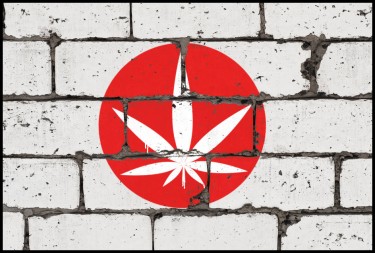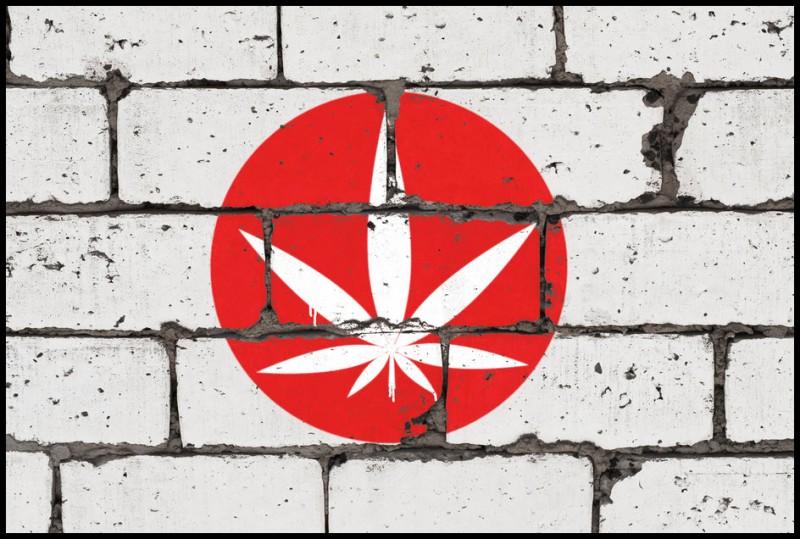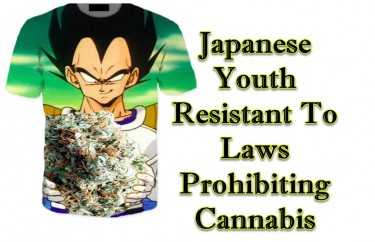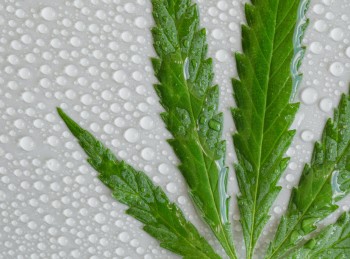The Japanese Cannabis Movement is Dead, Now What?

Who would have thought that Japan, with all its amazing innovations, will retain an archaic stand regarding cannabis?
All the cannabis reforms that have been introduced by the country's government and the health ministry have been nothing short of contradicting and backward even. Due to this, the country has experienced very high difficulties while trying to implement the said reforms.
This is sad because hashish used to be an integral part of cannabis culture up until the 1940s.
Use of Cannabis In Japan
After the second world war, the United States of America occupied Japan. This was in 1948, in their few months within the country, they were able to influence the Japanese government to enact new laws and policies. One of such policies was the prohibition of cannabis, especially high-THC products. Since then, the government has not only made the law stricter, it has cruelly enforced it on its citizens home and abroad.
Before the point when cannabis became illegal in Japan, history has it that this drug played a vital role in Japanese culture. People were allowed to grow and use the drug freely without limitations, it is important to mention that while all this happened, the country never experienced a wild bout of drug abuse. Makes one wonder why they banned the drug at all.
Reports have it that it was the Emperor of Japan that stepped in in the mid-1900s to save the hemp industry. His bold step ensured the continued cultivation of hemp plants in the country. He also introduced the concept of hemp permits to allow the government to have a record of growers.
This has been enough to keep the industry barely floating, as the numbers of hemp farmers have reduced over the years.
The government has been increasing the cost of hemp permits and farmers have been unable to afford them.
Right now, the total number of hemp growers in Japan is less than a thousand, whereas it used to be as high as 35, 000 before the current law came to be.
Like all other countries with banned substances, Japanese residents still imbibe the drug once in a while. There have also been advocates that have come out to challenge the government to reconsider its stance against cannabis.
All over the world, countries are trying to legalize cannabis, countries like Canada and South Africa already have existing laws that support the use of cannabis for medical and even recreational use.
Cannabis Laws In Japan
The 1948 law bans the possession and cultivation of hashish. Japan's efficient system makes it able to enforce this law without being partial about it. For example, in 1980, an ex-Beatle known as Paul McCartney was caught with less than 10 ounces of cannabis on him during a visit to the country. The ruling administration denied the celebrity visiting Japan for more than 10 years.
Since the law was passed, national companies have terminated the sponsorship contracts they have with athletes and other celebrities caught holding or using cannabis within and outside the country.
Japan has one of the harshest penalties for cannabis offenders. The punishment can range from being sentenced to at least five years in prison to paying exorbitant fines of around one to five million yen, depending on the severity of the case and the judge assigned.
A deeper look at the law reveals that there are no criminal penalties listed for offenders caught using the drug. In a free country, this grey area could be used to enact change in the industry. Instead, the Japanese government has held onto the upper hand, they were confident enough to issue warnings to Japanese nationals living in other countries about the use of recreational cannabis.
The government does not care if its nationals reside in cannabis legalized countries, it just maintains its stance that all nationals—home and abroad, should not be caught in possession of hashish.
CBD Use in Japan.
Hemp plants are high in CBD and have very low THC content. Japan is majorly against the use of THC-high marijuana plants. As recently as June 2021, the health ministry announced that high THC marijuana plants remain illegal. The ministry panel explained that there were growing concerns about the rate of usage in young citizens.
One major reason why the hemp industry has not been decimated is that hemp has been traditionally used as an aesthetic in cultural shrines within the country. In Shinto shrines, unique shimenawa ropes are used, these ropes are made with hemp plants.
In 2016, CBD products were approved for use by Japanese nationals that are of age. All cannabis-derived products with medicinal use have also been approved for managing ailments. The new policies allow the importation of these medications into the country.
What the Future holds for Japan's cannabis industry
Right now, the future of the industry is uncertain. The people that can bring change to this industry have been stigmatized in society. Ironically, about 10% of the population uses cannabis but are scared to speak out for fear of being penalized.
The country, despite permitting the use of CBD, is focused on penalizing nationals that use the drug without permits for non-medical reasons. Each year, the numbers of cannabis offenders increase significantly with young adults less than 30 years old accounting for the higher percentage of the total cases logged in the police department.
Companies have become innovative in their infusion of CBD into products. There are coffee shops that mix in CBD plants, and body cream manufacturers that also use the drug as an ingredient. More of these practices might pop in the coming years.
No one knows what to expect regarding the legalization of cannabis, however, Japan's ministry of health, labor, and welfare has promised to release a report before the end of September. This report will list out all the guidelines that will be used to regulate the hemp industry. The department disclosed that farmers will be allowed to sell their hemp within and outside their states.
Bottom Line
Japan is already popular for its advanced technology and design, just imagine how powerful they can be once they let go of their harsh drug policies.
JAPANESE MARIJUANA MOVEMENTS, READ MORE...
JAPANESE YOUTHS ARE FIGHTING FOR CANNABIS REFORM IN JAPAN!







